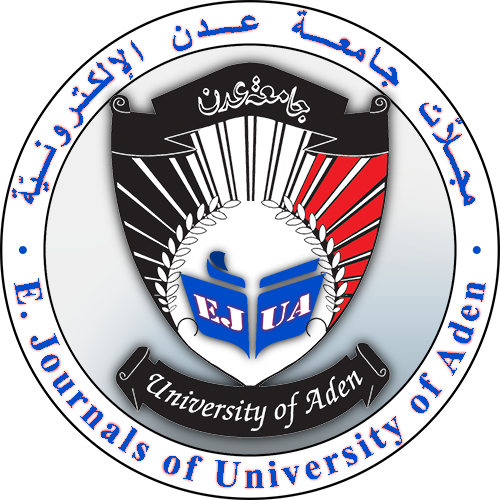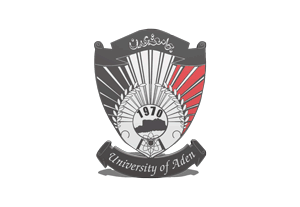Publication Ethics
Publication Ethics and Malpractice Statement
Academic ethics are the necessary fundamental principle of research and the foundation for researchers and scientists. As an academic journal, EJUA-BA Journal is a peer-reviewed journal that commits to meeting the highest standards of ethical behavior at all stages of the publication process. Publishers, editors, reviewers, and authors are required to follow our guidelines and standards, as well as best practices in research and publication ethics to guarantee that readers of the journal content have access to high-quality research works. We support the guidelines of the Committee on Publication Ethics (COPE) (https://publicationethics.org), and follow its flowcharts when dealing with suspect publication ethics.
The journal is published with four regular issues and one volume per year, and available online at https://ejua.net/index.php/EJUA-BA/. From submission to publication, each manuscript is handled by the editor-in-chief and editorial board of the journal as per the best practice principles below.
- Publication and Authorship:
All the published papers should list the references according to EJUA-BA style.
- Forbidden plagiarism and fraudulent data.
- Not allowed to publish the same research in more than one journal.
- Prohibited to publish the same research in different languages.
- Duties of Editor-in-Chief and Editorial Staff:
Editor-in-Chief and editorial staff of EJUA-BA Journal must not release any information about a submitted manuscript to anyone other than the corresponding author, reviewers, other editorial advisers, and the publisher, as appropriate.
The Editor-in-Chief makes an initial evaluation of each submitted manuscript by using appropriate means to check the originality of the contents of the submitted manuscripts. In evaluating the submitted manuscripts, the editor-in-chief should limit himself only to the intellectual content and he should not be partial by matters such as ethnic origin, citizenship, gender, sexual orientation, religious belief, or political philosophy of the authors. If the submitted manuscript passes this test, it is assigned to a section editor who forward it to two reviewers for double-blind peer review, and each of whom will make a recommendation to publish the article in its present form or to modify or to reject it.
If paper reproduces other works with about 20% similarity and without citation, the author will be offered a chance for rebuttal. If the arguments are not found to be satisfactory, the manuscript will be retracted and the author sanctioned from publishing papers for a period to be determined by the responsible Editor(s).
The review period will be no more than 2 months, delays in obtaining reviews may prolong this period. Once the review process has been completed, the section editor recommends acceptance, revision, or rejection of the manuscript. The final decision is made by the Editor-in-Chief. The decision will involve input from a Section Editor, volunteer reviewers, and when necessary, consultation with the Journal’s Editorial Board. A decision on the manuscript generally may be expected within 3 months. The Editor-in-Chief must ensure that information regarding manuscripts submitted by the authors is kept confidential.
- Duties of Authors:
Authors of reports of original research should present an accurate account of the work performed as well as an objective discussion of its significance. Authors are also responsible for language editing before submitting the manuscript. Underlying data should be represented accurately in the paper. A paper should contain sufficient detail and references to permit others to replicate the work. Authors must avoid any unethical and improper actions such as plagiarism, simultaneous submission, fabrication, fraud authorship, copyright breaches, hiding competing interests, etc. Fraudulent or knowingly inaccurate statements constitute unethical behavior and are unacceptable. The authors should ensure that they have written entirely original works, and if the authors have used the work and/or words of others that this has been appropriately cited or quoted.
Authorship should be limited to those who have made a significant contribution to the conception, design, execution, or interpretation of the reported study. All those who have made significant contributions should be listed as co-authors.
Authors should not in general publish manuscripts describing essentially the same research in more than one journal or primary publication.
Proper acknowledgment of the work of others should be given.
If the work involves chemicals, procedures or equipment that have any unusual hazards inherent in their use, the author must clearly identify these in the manuscript.
When an author discovers a significant error or inaccuracy in his/her own published work, it is the author’s obligation to promptly notify the journal Editor-in-Chief and cooperate with the Editor-in-Chief to retract or correct the paper.
- Changes in Authorship:
The authorship changes are concerned if request to add or remove a corresponding author before or after publication of the manuscript.
To change the authorship of an article, provide a valid reason(s) for changing in the authorship of the manuscript.
We ask from all authors if they agree on the change of authorship details. If all agree the authorship will be changed.
If not all authors agree, the article will be suspended until all authors agree to change in authorship details.
In case if the article already published and author do not agree on the change in authorship, their institution will be asked to resolve the issue of their authorship if the excluded author wish to proceed.
- Duties of Reviewers:
Reviewers should evaluate manuscripts based on journal rules and a manuscript content. They must ensure that all the information related to submitted manuscripts is kept as confidential and must report to the Editor-in-Chief if they are aware of copyright infringement and plagiarism on the author’s side. It is also the duties of reviewers to keep all unpublished manuscripts, and related materials, confidential. Manuscripts can only be shared with others with the permission of the editors. A reviewer who feels unqualified to review the research reported in a manuscript or knows that its prompt review will be impossible should notify the Editor-in-Chief and excuse himself from the review process. Reviewers should complete their review within the specified time frame. If additional time is necessary, they should inform the section editor of a delay.
Reviewers should identify relevant published work that has not been cited by the authors. Any statement that an observation, derivation, or argument had been previously reported should be accompanied by the relevant citation. A reviewer should also call to the editor's attention any substantial similarity or overlap between the manuscript under consideration and any other published paper of which they have personal knowledge.
Reviewers may decline to review a manuscript for any reason.









